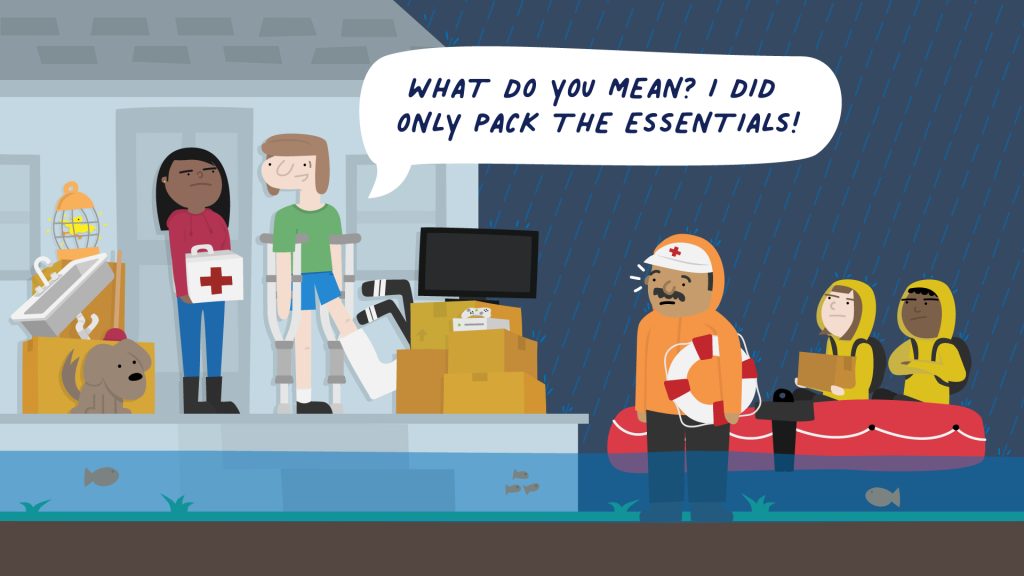Sheltering in place means taking cover wherever you are. It does NOT mean driving / going / walking home or back to work. If you are at a doctor’s appointment, at the store, at a restaurant, or some place else away from home, shelter in place wherever you are at that moment in time.
- If you are advised by local officials to shelter-in-place, remain inside your home or office.
- Close and lock all windows and exterior doors.
- Get your disaster supplies kit and make sure the radio is working or use a radio app on your phone. A list of local Delaware radio stations is available on our Stay Informed page.
- Go to an interior room without windows.
- Listen to your radio or television until you are told it is safe or you are told to evacuate. Local officials may call for evacuation to a safer place.
- In the case of a chemical or hazardous materials threat, an above-ground location is preferable because some chemicals are heavier than air and may seep into basements even if the windows are closed. Turn off all fans and heating and air conditioning systems. Close the fireplace damper.
- Only seal off doors, windows, and vents if advised to do so by emergency management authorities. Listen to emergency broadcast information and carefully follow instructions regarding sealing your home or business facility.


